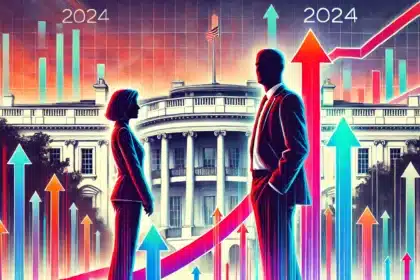Coinbase, a major player in the cryptocurrency world, is standing up against a proposed rule by the Commodity Futures Trading Commission (CFTC) that seeks to ban certain event contracts. The company’s Chief Legal Officer, Paul Grewal, has been vocal on social media, expressing concerns about the impact of this proposal on the innovation of prediction markets. Coinbase has also formally responded to the CFTC, urging the agency to rethink its stance, which the company believes could harm the burgeoning prediction market industry.

Paul Grewal’s Concerns and Coinbase’s Response
Paul Grewal took to X, formerly known as Twitter, to voice his concerns about the CFTC’s proposed rulemaking. He pointed out that the proposal could lead to the banning of many prediction contracts without sufficient justification. Grewal specifically mentioned that the rule could negatively affect contracts related to events such as the Nobel Prizes and the Oscars. He emphasized that the proposal has a “definition problem,” as it broadly categorizes these contracts as gaming, which he argues is an overreach.
In its official response to the CFTC, Coinbase acknowledged the Commission’s mission to maintain the integrity of U.S. derivatives markets. However, the company criticized the proposed rule for its broad and overly inclusive definition of “gaming.” According to Coinbase, this broad definition could inadvertently ban economically viable contracts that are not traditionally considered gaming. The company urged the CFTC to withdraw the proposal and instead adopt a more balanced approach that aligns with the Commodity Exchange Act (CEA) and the Commission’s mission to protect innovation in U.S. markets.
Support from Dragonfly and Crypto.com
Coinbase is not alone in its opposition to the CFTC’s proposal. Dragonfly Digital Management and Crypto.com have also joined the fray, arguing that the agency’s approach is misguided. Jessica Furr and Bryan Edelman, representing Dragonfly, argued that political event contracts should not be equated with gambling on games of chance like the Super Bowl. They pointed out that elections have significant economic implications, making these contracts important tools for hedging risks and providing valuable predictive data that can benefit the public.
Dragonfly and Crypto.com have both raised concerns about the timing and rationale behind the CFTC’s proposal. They highlighted the recent Supreme Court decision in the Chevron case, which limits the agency’s power without explicit congressional approval. This, they argue, makes the CFTC’s proposed blanket ban on prediction markets appear as a serious overreach. Crypto.com’s Steve Humenik has also criticised the CFTC for allegedly violating the rulemaking process laid out by the CEA, calling for the proposal to be scrapped.

Call for a Balanced Approach to Regulation
In their letter to the CFTC, Coinbase reiterated its belief that the Commission’s all-or-nothing approach to event contracts is inconsistent with the promotion of responsible innovation and growth in regulated markets. Paul Grewal argued that the CFTC’s proposal to categorise political contests, awards, and athletic events as “gaming” is fundamentally flawed. He pointed out that such a broad definition does not align with a reasonable understanding of the term “gaming,” nor is it supported by the CFTC’s own legislative history.
Coinbase provided an example to illustrate its point: a vendor who prints t-shirts for a championship team might want to hedge their bets by taking a position against that team. This, Grewal argues, is not gaming but rather smart business. Yet, under the CFTC’s proposed rules, this type of market could be lumped together with actual gambling, which Coinbase believes is a major mistake.

Conclusion: The Debate Over Innovation vs. Regulation
The growing debate over the CFTC’s proposal highlights the tension between innovation and regulation in the cryptocurrency space. Coinbase, along with Dragonfly and Crypto.com, is pushing for a regulatory approach that protects market integrity and public interest without stifling the growth of innovative markets like prediction markets. The outcome of this debate could have significant implications for the future of these markets in the United States.
As the discussion continues, it remains to be seen whether the CFTC will heed the calls for a more balanced approach or proceed with its current proposal. For now, the conversation around the regulation of event contracts remains a hot topic, with major players in the crypto industry advocating for a regulatory framework that fosters innovation rather than hindering it.
This news was first published on TheBITJournal.





























